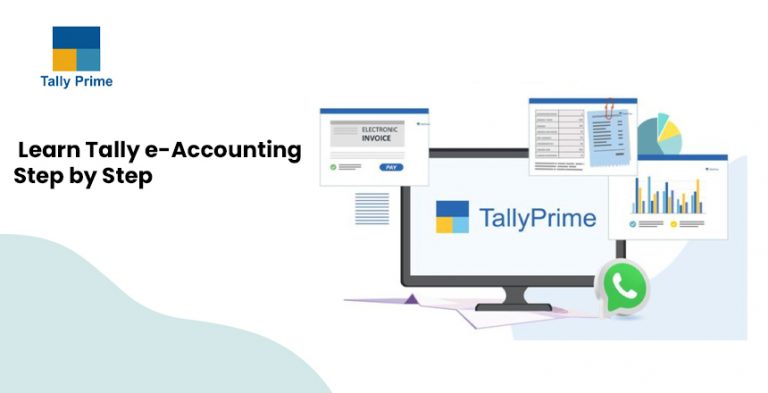With the financial year 2025-26 coming in, business owners in India are yet again searching for means of legally minimizing their tax payable and maximizing profits. As a new startup owner or head of an established business firm, tax planning is important. Proper use of the provisions in the Income Tax Act with keeping track of the changes in the policies enables businesses to save a lot and enables them to have easier financial management.
The following are the most worthy and current tax saving strategies which entrepreneurs must have in mind in the current year.
1. Take the Highest Deductions With the Help of Relevant Sections
Proper knowledge on the deduction of taxes is a major way of cutting down the taxable earnings of a business. Some of the provisions in the Income Tax Act are particularly effective to the business owners:
- Section 35 provides deduction of expenses incurred on scientific research or innovation, and that is excellent as far as tech, pharma and engineering business firms are concerned.
- Section 80JJAA promotes creation of employment by providing bigger deductions towards new hire employees as employed during the financial year.
By planning these investments very well, you can save on taxes besides beefing up your operation capacities.
2. Tax-Efficient Employees Benefits
Not only do employee benefits help in retention of the employees but they also provide businesses with a variety of tax exemptions. Typical write offs are:
- Employer health insurance rate
- Food expense and travel payments
- Provident fund and gratuity contribution
Such expenses are expendable under different provisions of the law and can also be thoughtful, in order to be both motivating to the workforce, as well as tax-efficient.
3. Choose the Most Favourable Business Structure
Your business can have a major influence in tax-paying through its legal structure be it a proprietorship, partnership, LLP, or a privately limited company. For example:
- The LLPs are flat taxed and have less compliances.
- Any startup registered under the private limited companies is eligible to avail of the provisions of Section 80-IAC, as long as it is recognized by DPIIT.
Check your current structure to see whether it is worth switching to a more tax-efficient one in the long-run perspective.
4. Take Advantage of Depreciated assets
In case your company spends money on a machine, a car, a desk or a technological device, you are entitled to the depreciation according to the Income Tax Act. You may be able to depreciate more rapidly, in certain circumstances, e.g. in the case of environment-friendly / energy-efficient installations. This strategy helps you recover profits by reducing the annual wear and tear of assets and this will enable you to pay less as taxable income.
5. Look at Presumptive Taxation (Should it be Your Eligible Taxation)
The Presumptive Taxation Scheme could serve the interests of small enterprises and professionals that have lesser turnover since this allows the simplification of the whole tax procedure. Under this:
- Those businesses which earn a turnover of up to 3 crore can choose Section 44AD.
- Section 44ADA can be used by professionals (such as doctors, architects or even freelancers) whose receipt amounts do not exceed 75 lakh.
This arrangement time-saves & lessens compliance expenses and also the tax payable in total comes down.
6. Efficiency in GST Input Tax Credit (ITC)
A proper utilization of Input Tax Credit (ITC) will save a lot of money, under GST. Here is how you can make the most out of it:
- Make sure the suppliers are compliant and post their bills.
- Shadow purchases GSTR-2B on a regular basis.
- Do not claim ITC on costs not entitled to such as personal use costs and blocked credits.
- Controlled ITC procedure can increase the amount of cash flow and lessen indirect tax load.
7. Make use of the Startup Tax Benefits
The startups appearing to be eligible are allowed to apply 100 percent income tax exemption within the first three years of financial years of out of the initial ten years according to the section 80-IAC. But they have to be identified by DPIIT and satisfy some turn over and innovation requirements. This tax exemption may greatly enhance growth of the new businesses in the initial years.
8. Intelligently plan Donations and CSR Page 1
Although the tax law does not allow mandatory expenses of CSRs as tax-deductible expenses, the taxes paid to a recognized charitable institution are allowed. Section 80G You are allowed to claim deductions on contributions made to approved NGOs or funds sanctioned by a government. Make sure that the organization gives the necessary receipt and can be deducted according to the current principles.
9. Digital Transactions Choices are Better Compliant
To promote transparency, the government still promotes digital payments. The cash payments made towards businesses that exceed the amount of 10,000 Rupees cannot be declared as deductible under 40A(3). By using electronic modes (such as NEFT, IMPS or UPI) one will be complying and will be able to avail the entire tax benefits.
10. Capital Gains-Manage in an Intelligent Way
In case your company, on the sale of capital objects like land, stock, or intellectual property, realised profits, you should anticipate the capital gains tax. The sale can be timed, reinvesting profits made in notified bonds of Section 54EC, or a new property under Section 54F to minimize or postpone the tax. It is imperative to track the holding period between short-term and long-term capitals to enhance the best planning.
Final Thoughts
You can not wait till the last quarter before adjusting your taxes. Proactive planning and frequent compliance are the worst tax-saving measures that a business owner can carry in FY 2025-26, as well as checking all the available deductions and exemptions opportunities. Automation, hiring of consulting professionals, and following the latest developments in the sphere of tax laws can be a long way to the maximisation of savings and the development of businesses.








